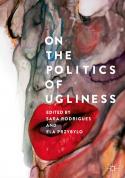Stigma Stains: The Somaesthetics of Institutional Abjection
Diverse art practices have, since time immemorial, sought to establish a visceral link with the viewer's insides in order to problematise order and disorder, normativity and aberration, totem and taboo, as even a cursory glance at Ghirlandaio's portraits of decay, Bruegel's depictions of disease, the Viennese Actionists' performances with animal carcasses or Athey's ritualistic work with HIV-positive blood, shows. In all these works, the defilement, the disgust, and the horror are intentional, strategic - even ideological. But what of the unintentional, even decidedly unwanted, yet ceaselessly produced abjection? With its beautiful gardens, highly aesthetised yet functional architecture, and exceptionally rich occupational content, the Bethlem Royal Hospital, London, is the epitome of applied ("ethical") aesthetics. The politics of egalitarianism is here inscribed in all regulations, daily routines, and the individually tailored approaches to psychiatric care. And yet, this (utopian) construct is corroded by the greasy fingerprints on the glass separating the nursing station from the ward; deep cuts in armchairs and sofas; and dents in the woodwork that act as reminders of the more violent attacks, as do, indeed, bruises on patients' faces, necks, and arms. Fusing Nagatomo's notion of the body as an actional-humoural process with Kristeva's abjectness and Rozin's theories of disgust, this essay queries the relation between applied aesthetics, politicised sociality, and (covert) stigmatisation. It argues that stigmatisation occurs behind the scenes, in looped somaesthetic processes, as a byproduct of sensorial, behavioural, and environmental ugliness. In acknowledging this state of affairs, the essay also articulates the relationship between the (vulnerable) somatic body and the vulnerability of the (neoliberal) institutions of care.
Citation:
Lushetich, Natasha. "Stigma Stains: The Somaesthetics of Institutional Abjection." On the Politics of Ugliness, edited by Sara Rodrigues and Ela Przybylo, Palgrave Macmillan, 2018

